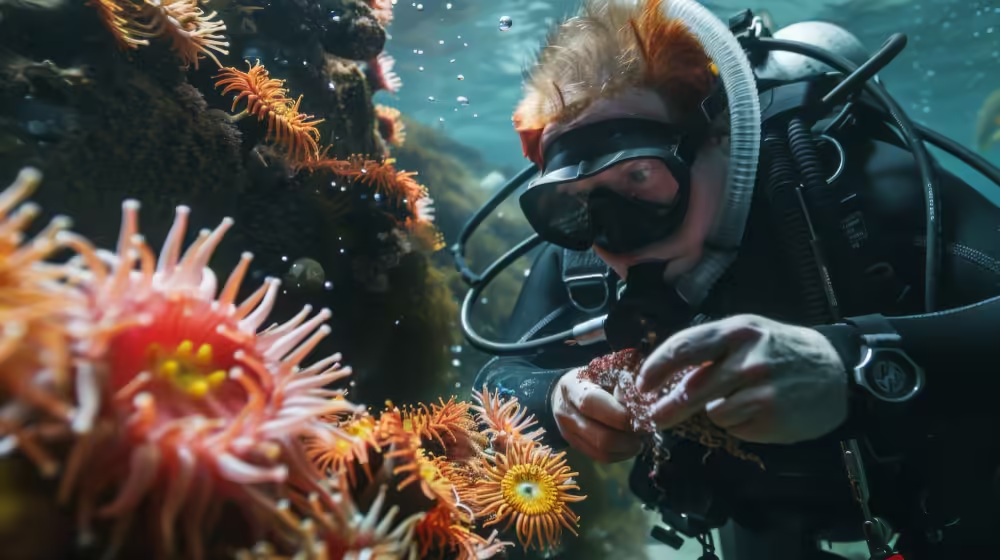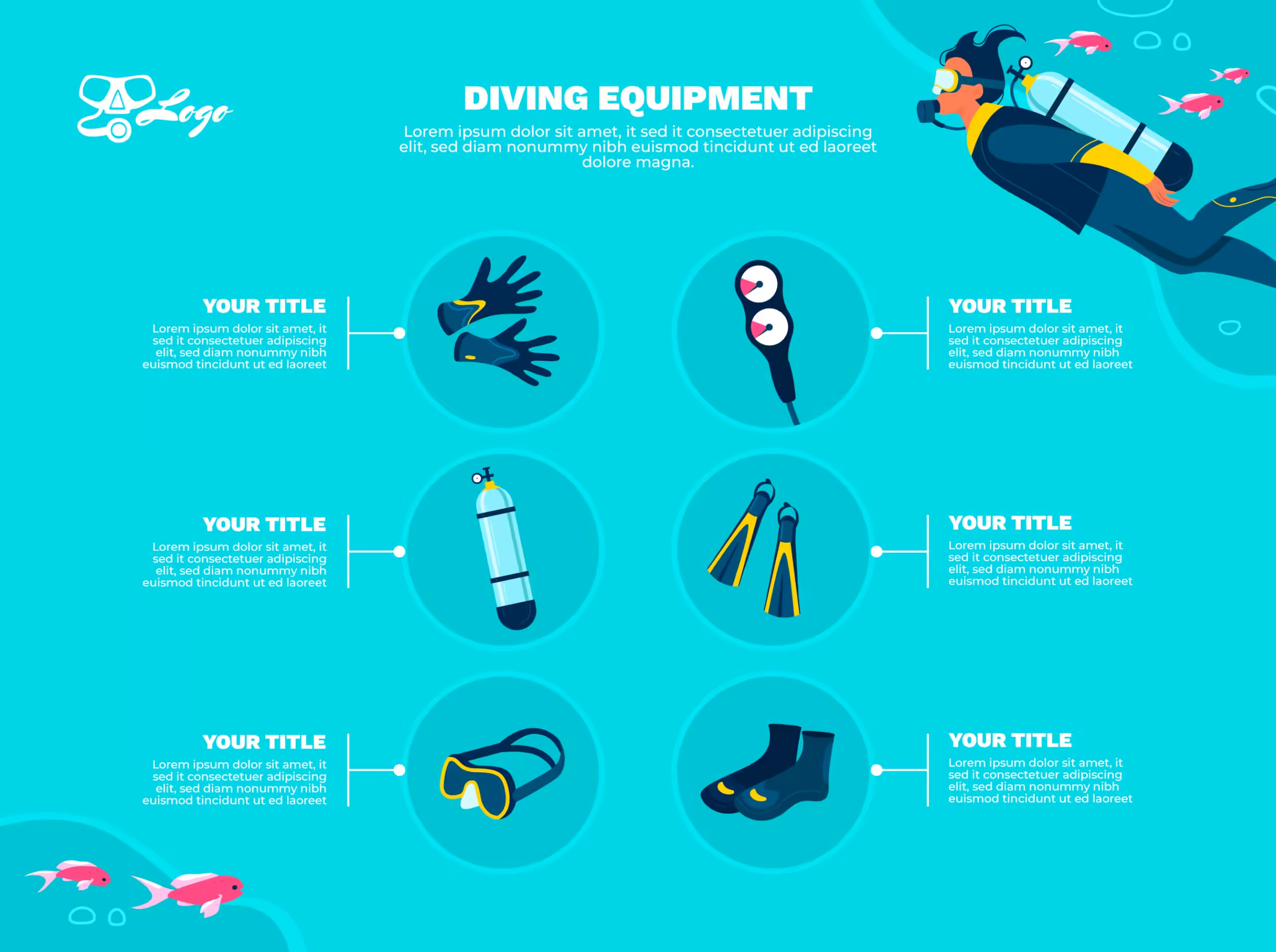Diving into the world of scuba diving opens up a whole new underwater adventure, but having the right gear is crucial for both safety and enjoyment. Whether you’re a seasoned diver or just starting out, selecting the appropriate scuba equipment can make a significant difference. In this guide, we'll explore what to consider when choosing scuba gear, highlight essential equipment, and provide tips for ensuring a great dive experience.

Primary Considerations When Choosing Scuba Gear
1. Comfort and Fit
The most critical factor when selecting scuba gear is comfort. A good fit ensures that your gear does not cause discomfort or restrict movement underwater. When trying on equipment such as wetsuits or BCDs (Buoyancy Control Devices), make sure they fit snugly without being too tight. Properly fitting gear enhances your buoyancy control and overall diving experience.
2. Safety Features
Scuba diving safety equipment is paramount. Look for gear that includes features such as automatic inflation devices on your BCD, reliable dive computers, and well-maintained regulators. Safety should never be compromised, so ensure your equipment meets industry standards and is regularly serviced.
3. Durability and Quality
Invest in high-quality gear that can withstand the rigors of diving. Durable materials and well-constructed equipment are crucial for withstanding underwater conditions and frequent use. Consider brands with a strong reputation for reliability and quality.
Choosing the Right Dive Equipment for Beginners
1. Dive Computer
A dive computer is essential for tracking your depth, time, and decompression status. For beginners, choosing a user-friendly dive computer with clear displays and simple interfaces is ideal. Look for features such as depth alarms, gas tracking, and easy navigation.
2. BCD (Buoyancy Control Device)
When selecting a BCD, consider factors like the type (back-inflate or jacket style), size, and weight. A BCD should provide enough lift to keep you buoyant but not hinder your movements. Ensure it has ample adjustment options for a comfortable fit.
3. Regulator
The regulator is your lifeline underwater, providing you with air. For beginners, a reliable and easy-to-maintain regulator is crucial. Look for models with an adjustable second stage and a good balance between performance and ease of use.
4. Wetsuit or Drysuit
The choice between a wetsuit and a drysuit depends on the water temperature and your personal preference. Wetsuits are suitable for warmer waters, while drysuits provide better insulation for colder temperatures.
Which of the 11 Basic Scuba Diving Equipment is Most Important?
The 11 basic pieces of scuba diving equipment typically include:
- Mask
- Snorkel
- Fins
- Regulator
- Buoyancy Control Device (BCD)
- Dive Computer
- Wetsuit/Drysuit
- Tank
- Weights
- Surface Marker Buoy (SMB)
- Dive Knife
Among these, the regulator, BCD, and dive computer are often considered the most crucial. These items directly affect your safety and comfort underwater.
Scuba Diving Equipment List with Pictures
Here is a brief overview of essential scuba gear, with typical items pictured:
- Mask: Allows you to see underwater clearly.
- Snorkel: Lets you breathe at the surface without lifting your head.
- Fins: Help you swim efficiently.
- Regulator: Delivers air from your tank.
- BCD: Manages your buoyancy.
- Dive Computer: Monitors depth and time.
- Wetsuit/Drysuit: Provides thermal protection.
- Tank: Holds the compressed air you breathe.
- Weights: Help you achieve neutral buoyancy.
- Surface Marker Buoy (SMB): Indicates your position at the surface.
- Dive Knife: Useful for safety and cutting entangled lines.
Best Travel Dive Gear
For travelers, compact and lightweight dive gear is essential. Consider items such as:
- Travel BCD: Lightweight and easily packable.
- Travel Regulator: Compact and durable.
- Foldable Fins: Save space in your luggage.
Boat Dive vs. Shore Dive
Boat Dive
Advantages:
- Access to deeper and more remote dive sites.
- Generally, clearer water conditions.
Disadvantages:
- Requires boat transportation.
- May involve more logistics and costs.
Shore Dive
Advantages:
- Easier access to dive sites.
- Less expensive as no boat is needed.
Disadvantages:
- May involve more effort to reach deeper areas.
- Water conditions can be more variable.
Conclusion
Choosing the right scuba gear is essential for a safe and enjoyable diving experience. By considering factors such as comfort, safety, and quality, and selecting equipment tailored to your needs, you can enhance your underwater adventures. Whether you’re gearing up for your first dive or looking to upgrade your existing setup, following these guidelines will help ensure that you make informed decisions and enjoy every dive to the fullest.



0 Comments